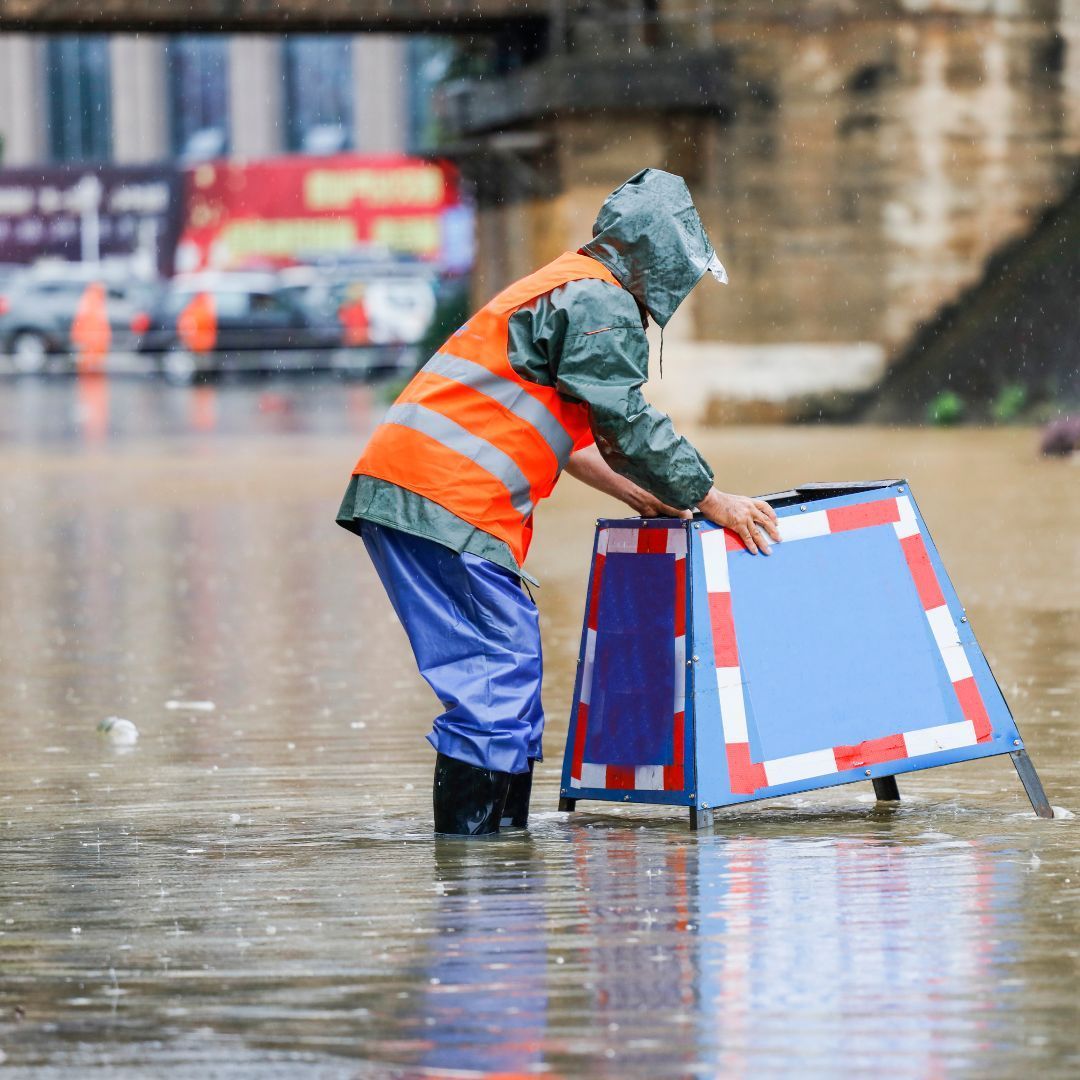Email us today!
What Happens When I Total My Car in Michigan
See How We're Different
or call us: (248)-647-2500
Accidents can happen without warning, and the results can be devastating when they involve a car. Michigan is no stranger to this reality, and if you total your car in the state, it’s important to understand what happens next. Depending on the circumstances of the accident, you may be entitled to certain compensation.
This guide explains what happens when you total your car in Michigan and outline your options after experiencing a total loss.
When Is a Car Considered Totaled in Michigan?
"Totaled" is an expression that indicates a car has sustained substantial damage and may be beyond repair. The final determination of whether the vehicle is considered "totaled," however, lies with your insurance company who will then decide what type of claim to issue you as a result. In Michigan, a car becomes totaled only when:
- It is not possible to repair it safely.
- Repair costs exceed the current value of the vehicle. When it comes to insurance, a vehicle's worth is determined by its actual cash value (ACV). In Michigan, a car is deemed a total loss if the cost to repair it is equal to or more than 75% of its actual cash value (ACV).
- The amount of damage surpasses the maximum limits outlined by state regulations. The state of Michigan has established basic guidelines for the evaluation of a vehicle’s worth.
What Happens If Your Car Is Declared a Total Loss in Michigan?
If you agree that your car is a total loss, your insurance provider will require you to do the following:
- Remove your license plates: Make sure to remove them and return them to the Secretary of State's office.
- Notify the Michigan Department of Motor Vehicles (MV): You must provide an official statement from your insurance company that states that your vehicle is a total loss due to an accident or other covered incident. This will trigger the process for the cancellation of your vehicle's registration.
- Contact the leasing company if you lease your vehicle: If you lease your car, you must contact the leasing company and provide proof of total loss.
- Provided documentation to your insurance company: You must provide documents that prove you own the vehicle, such as the original title or a copy of the registration card.
- Sign an agreement: After all, documents have been submitted and approved, you will need to sign a release form indicating that you agree with the total loss decision.
- Surrender the vehicle: Once all documentation has been signed and accepted, you must surrender your vehicle to the insurance company. Depending on the terms of your policy, this may include a salvage fee.
The faster you complete these steps; the sooner you can move on from your totaled car. It is important to remember that even if your vehicle has been declared a total loss, other options are still available to help you get back on the road.
What Are the Next Steps After Totaling a Car in Michigan?
After totaling your car in Michigan, you must file an accident report with your insurance company. In order to do this, you must first collect all details related to the accident, such as the names of any other parties involved, witnesses who can testify to what happened, and photos or videos of the incident. You must provide accurate information in your report, as this can impact the outcome of your claim.
Next, you will need to get an estimate for repairing the damage to your car. You can do this by visiting a certified mechanic or body shop and having them look over the vehicle. The repair cost should be discussed with your insurance company before any repairs are made, as some may not cover certain types of damage.
Once you have collected the necessary information, you can file an accident report with your insurer. This will involve providing details about the incident, including all pertinent facts, such as the time and location of the accident. Your insurance company may require additional documentation, such as a police report or medical bills, if applicable.
Your insurance company will review the claim and determine whether or not they will cover the cost of repairs or total your vehicle. If they decide to total it, they will typically provide you with an offer for payment in exchange for ownership rights to the car. You may then accept or reject their offer at this point.
What Are My Options After Totaling a Car in Michigan?
When your car is totaled, there are several options available. It is important to understand the implications of each option before making a decision.
- Receive a cash payment from your insurance company. When your car is declared a total loss, you have the option of getting a cash payment from your insurance company for the current market value of the vehicle minus any deductible you may owe. This payment is typically referred to as Actual Cash Value (ACV).
- Get a replacement vehicle. If your car is totaled, some insurance companies will offer to replace it with a new or comparable model. Check with your insurer to see if this option is available, and ask about any additional costs you may incur.
- Keep the car and repair it yourself. Some people opt to keep their cars and repair them independently, although this is usually not recommended as it can be quite costly. Remember that your insurance company must still approve the repairs before they are eligible for coverage.
- Keep the car and do not repair it. This may be the best option if the car has sustained major damage, and repairing it is not economically feasible. The insurance company will then issue you a Salvage Title, which allows you to keep the vehicle (albeit inoperable) for parts or scrap.
- Sell the car. If you decide to keep the car and repair it yourself, you may want to consider selling it. This will allow you to get back some of your money and use it towards a different vehicle.
Steps to Getting a New Car After Your Totaled Vehicle Has Been Declared a Total Loss
After your car has been declared a total loss, you may be wondering what the next steps are for getting a new car.
- Calculate your budget: Before making any major purchases, it is important to figure out how much money you can reasonably afford to spend on a vehicle.
- Research and compare different cars: Start researching different makes and models of cars that fit both your needs and budget.
- Test drive the car: Once you have found a few potential vehicles, take them for a test drive to see which one is the best fit for you.
- Get financing: If you need help financing your new car, there are a number of options available to you, such as loans, leases, or dealer financing.
- Purchase insurance: Make sure to purchase insurance for your new vehicle before driving it off the lot.
- Register your car: The last step is registering your new car with the state and getting new license plates.
With the right guidance, you can find the perfect car to replace your totaled vehicle and enjoy many years of safe driving.
Total Loss: Frequently Asked Questions
If you have been in an accident and are facing the reality of a totaled car, here are some questions that people often ask.
What do I need to do if I'm in a car accident?
In Michigan, if you are involved in a car accident, regardless of whether your vehicle is totaled or not, you must file a police report and notify your insurance company as soon as possible.
How long will the process take?
The time it takes to settle the claim varies depending on various factors, such as whether you are dealing with more than one insurer or if there is an investigation involved. Generally, however, the process should be completed within a few weeks.
What happens if my car is totaled and I owe more than its worth?
If you owe more money on your loan or lease than what your vehicle is worth, you may still be responsible for making payments even after the accident. Depending on the terms of your agreement, this could mean that you need to pay off the remainder of the loan even though your car is no longer in service.
Can I keep the car after it's been totaled?
Depending on the damage and cost of repairs, you may be able to keep your vehicle after it has been declared a total loss by your insurance company. However, if the repairs exceed the current value of the car or are deemed unsafe, you will need to surrender it for salvage.
How much am I paid if my car is totaled?
Depending on the terms of your insurance policy, you may be eligible for a cash payment from your insurer. This amount is typically based on your vehicle's actual cash value (ACV). The ACV represents what it would cost to replace your car with another one with similar features and mileage. This amount may not cover any outstanding loan or lease payments you owe.
Having Further Questions? Contact Oakland Insurance Today!
If you have any further questions about what to do if your car is declared a total loss in Michigan, or any other insurance-related inquiries, Oakland Insurance is here to help.
Our team of experienced and knowledgeable agents are available to answer all of your questions and provide helpful advice. From claims processing to finding the most suitable coverage for your vehicle and budget, we can guide you through the process.
Contact Oakland Insurance today to get started!
BLOG AND NEWS
















